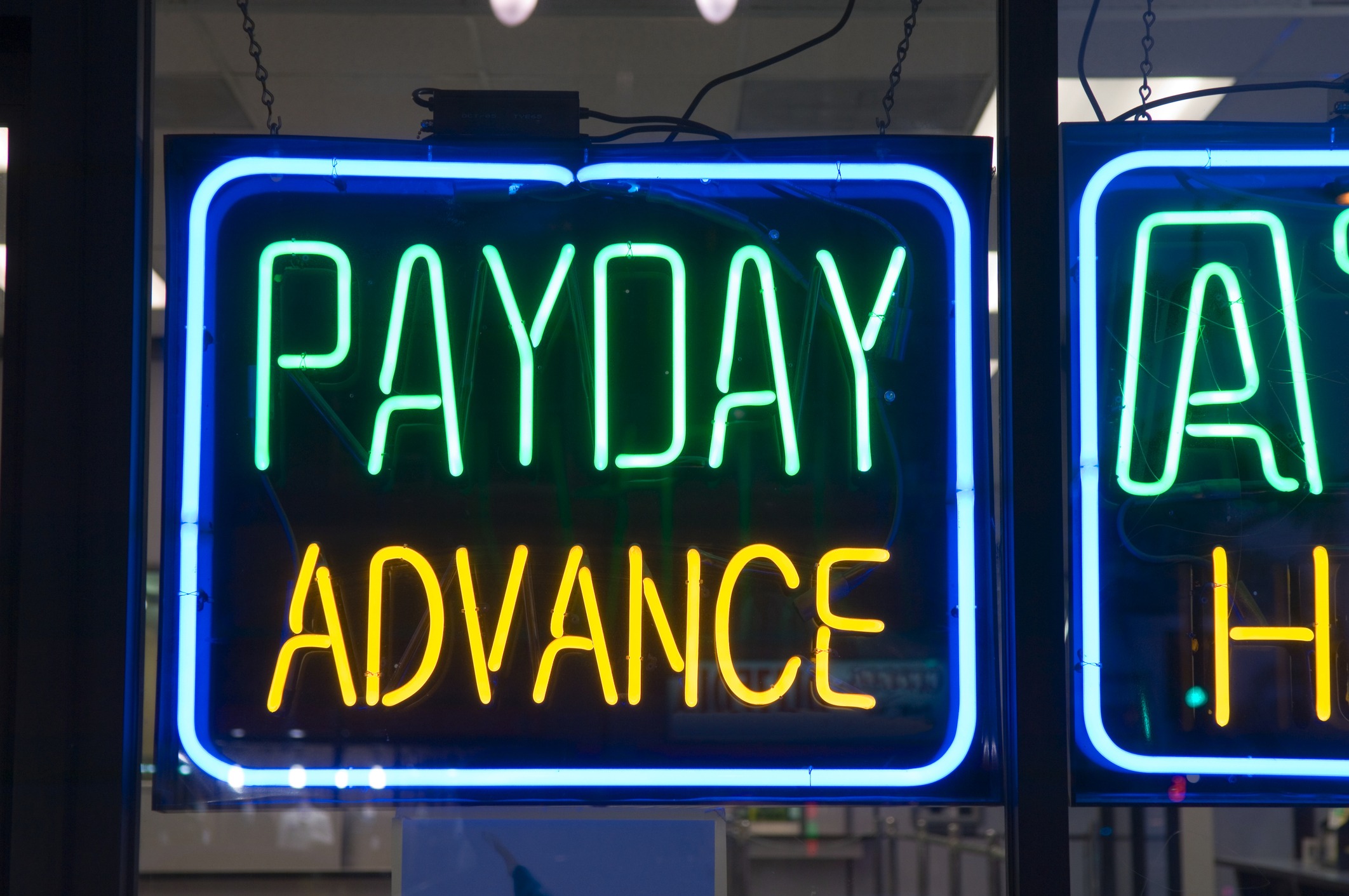How to borrow when the economy slows down
According to Statistics Canada, the last quarter of 2018 saw the weakest quarterly growth in the national economy since 2016. Will this affect your borrowing?
Borrowing money is a fact of life. After all, how many of us can buy a home without a mortgage loan, for example? If used wisely, borrowing can be an effective financial tool. But, like all tools, it’s important to know how to use it properly. And beyond that, you should be aware of what financial experts say about borrowing when the economy slows down.1
Is this a good time for individuals to borrow in Canada?
Educators Financial Group Senior Financial Advisor Michail Tsirikos provides his perspective on the question.
“The Canadian economy is definitely experiencing a much deeper-than-expected slowdown. Consumer spending grew at the slowest pace in almost four years, housing fell by the most in a decade, business investment dropped sharply for a second straight quarter, and domestic demand posted its largest decline since 2015, according to the Financial Post. The potential for higher interest rates and trade wars, and the issues with the oil sector, are impacting consumers and businesses alike. Canadians, it seems, are tightening their purse strings.”
So how can members of the education community better prepare for a sluggish economy?
“The rules of thumb in a slowing economy for education members are the same as for everyone else—establish an emergency fund; set up a budget; pay down your debt; and reduce your spending”, advises Michail.
How to financially prepare for an economic slowdown
Good financial habits are like your students’ good homework habits: the sooner you start, the better.
#1. Establish a budget.
A budget is the first step to better managing your funds. It helps you understand exactly where you’re spending your money (“I’m spending how much on takeout coffee??”), and identify where you could cut back. It also helps you prioritize and put aside money regularly for your most important goals. “One of the most important goals for many education members is their retirement”, says Michail. “Most of my clients retire well before age 65”, he says, “and they need their retirement funds to last longer.”
Educators Financial Group has a handy budget calculator to help you establish a budget.
#2. Set up an emergency fund.
Nothing gives peace of mind like having an emergency fund—ideally, 4 to 6 months’ worth of salary—that you can quickly access if you need to. Where would that money come from? Well, just make it part of your budget. Or perhaps open a line of credit at a low interest rate (making sure to follow the suggestions below).
#3. Pay less interest on your debt.
Another benefit of a line of credit is that it can be used to consolidate different sources of debt that have high rates of interest. As a result, you could save a lot on interest each month (which could, in turn, go towards your emergency fund).
#4. Cut back on your expenses.
Once you understand where your money is going, it’s easier to think of ways to cut back. Carry homemade coffee to work in a thermos. Rent a movie instead of going out. Clean out the garage and have a yard sale. You’ll be surprised at how and where you might be able to reduce expenses.
What if you still need to borrow? What’s the best way?
“Life happens, and sometimes you need to borrow some money to help you get where you want or need to go”, says Educators Mortgage Agent Level 1 – Regional Director, Lending Services Chris Knoch. “Knowing how to borrow and exploring all available solutions is especially important during times of economic downturns and within an uncertain political climate where a work stoppage is a real possibility.”
Here are a few suggestions to make the traditional means of borrowing work for you.
Credit card
With hundreds of different credit cards available, you should aim to have one that has no fees (or at the very least, a low fee). Many people find that they don’t use the features their annual fee covers, anyway. If you pay off the balance in full each month, you’ll also save yourself the interest payments.
Overdraft protection
This covers a short-term cash shortage in your bank account and NSF (non-sufficient funds) cheques. Be aware of how much you’re being charged for the service and how much interest you’re paying.
Personal loan
With a term loan, you repay the loan over a fixed period of time on a variable rate of interest (one that typically moves with the Bank of Canada’s overnight lending rate).
Line of credit
With a line of credit, you’re pre-approved to borrow up to a set limit. You can borrow and repay at any time, as long as you make the minimum monthly payment. If you get a line of credit at a low rate, it can be used to consolidate other debts on which you may be paying higher interest—freeing up some cash each month, and saving you a lot in interest. One caveat: like any other loan, you should pay off as much as possible each time, and also be aware of how it affects your credit score.
Know the difference between a secured vs. an unsecured line of credit.
Mortgage
If your mortgage is due for renewal soon, you may be presented with a tempting offer to keep your payments the same (maybe even at a higher interest rate) by stretching out your amortization. Don’t do it. You’ll take longer to pay off your debt, and will probably end up paying more in interest over the term.
Instead, be prepared for higher mortgage rates using our online calculator to see how those rates could affect your payments. Lengthen the amortization period only if you’re experiencing a cash crunch.
When renewing your mortgage, remember that this is your chance to compare other mortgage providers. Consider Educators Financial Group. While a bank can only offer the bank’s product and rate, as a brokerage Educators works with many different mortgage providers to find the best rate and terms for you.
Check out our current mortgage rates here.
Lease
It might cost less to lease a product (e.g. a car) than to get a loan for it. The big difference is that at the end of the lease you don’t own the product, which means you haven’t built up any equity. But you may have the option to buy the product for what it’s worth at the end of the lease.
Keep in mind that many leases set special conditions to meet. For example, a car lease could stipulate how many kilometres you can drive annually, and charge you an additional fee at the end of your lease if you exceed that amount.
Withdraw from your RRSP
The Canada Revenue Agency’s Home Buyers’ Plan and Lifelong Learning Plan let you withdraw from your Registered Retirement Savings Plan (RRSP) without paying taxes, in order to buy your first home or pay for education. However, remember that the money you take out won’t be growing tax-free for your retirement, and you will have to pay it back within a specific amount of time.
Whether the economy is moving slow, fast, or at a steady pace—get borrowing advice from us.
At Educators Financial Group, we’re here to help members of the education community with their financial needs. With our easy-to-use tools and educator-specific perspective, we can help you navigate any changes in the economy and find the products you need to reach your goals.
Give us a call today at 1.800.263.9541 or get started with an Educators lending specialist.
Sources:
Your debt in 2019: Trends that will affect your finances and how to prepare for them
https://www.investopedia.com/articles/pf/09/avoid-five-recession-risks.asp
https://business.financialpost.com/news/economy/weaker-gdp-than-anyone-expected-shows-canadian-growth-stalling
Brokerage license 12185
The information provided is general in nature and is provided with the understanding that it may not be relied upon as, nor considered to be, the rendering of tax, legal, accounting or professional advice. Please ensure to consult your accountant and/or legal advisor for specific advice related to your circumstances. Educators Financial Group will not be held responsible or liable for any losses, costs, damages or expenses incurred by reason of reliance as a result of the aforementioned information. The information presented was obtained from sources that are believed to be reliable. However, Educators Financial Group cannot guarantee their completeness or accuracy.


